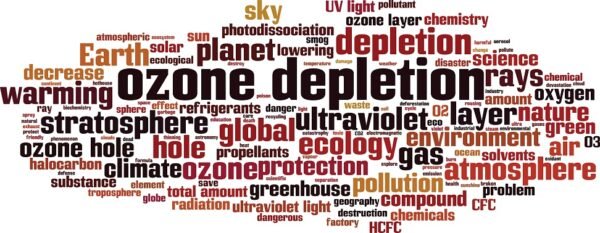On June 9, 2022, the Singapore National Environment Agency (NEA) and the Ministry of Sustainability and the Environment (MSE) announced that Singapore had ratified the Kigali Amendment to the Montreal Protocol. The Montreal Protocol is an international arrangement that mandates the phasing out of production and consumption of ozone-depleting substances with a view to protecting the ozone layer. In 2019, the Kigali Amendment to the Montreal Protocol entered into force. This amendment adds hydrofluorocarbons (HFCs), which are an alternative to ozone-depleting substances but which are also powerful greenhouse gases, to the controlled substances in order to prevent global warming, . Singapore plans to reduce its HFC consumption by 80% over the next 20 years to meet its Kigali Amendment obligations.
A joint NEA and MSE news release on this matter can be viewed at the following URL.
https://www.nea.gov.sg/media/news/news/index/singapore-ratifies-kigali-amendment-to-the-montreal-protocol
HFCs are commonly used as refrigerants in refrigeration and air-conditioning equipment. For example, the global warming factor (GWP) of a representative refrigerant used for chillers is 1300.
Under the Kigali Amendment, developing countries, including Singapore, are obliged to phase down their consumption of HFCs from the baseline * in accordance with the following schedule:
| 2024 | Frozen |
| 2029 | 10% reduction |
| 2035 | 30% reduction |
| 2040 | 50% reduction |
| 2045 | 80% reduction |
* The reference value is the average of HFCs consumption in 2020-2022 + HCFC reference value × 65%
To date, NEA has put in place several measures to help industry move to more climate-friendly alternatives. For example, HFCs have been added to hazardous substances regulated under the Environmental Protection Management Act, and HFC imports have been subject to license since January 1, 2019. In 2020, NEA introduced a subsidy system targeting chillers that use low-GWP refrigerants to support companies wishing to switch to climate-friendly water-cooled chillers. In addition, under Part 10A of the newly enacted Environmental Protection Management Act, regulations to reduce HFC emissions will come into effect on October 1, 2022. These regulations are intended to shift the market to more climate-friendly refrigeration and air-conditioning technologies and equipment, to require proper handling of refrigerants in servicing operations, and to require the collection and proper disposal of used refrigerants in refrigeration and air-conditioning equipment that is to be discarded.
The government will continue to work closely with industry stakeholders to reduce HFC consumption and support the transition to climate-friendly alternative substances.
 Singapore ratifies Kigali Amendment to Montreal Protocol
Singapore ratifies Kigali Amendment to Montreal Protocol 

























